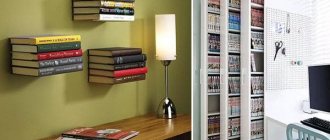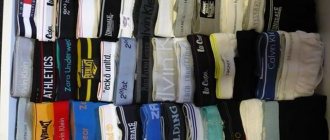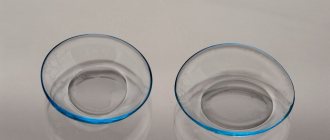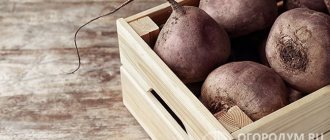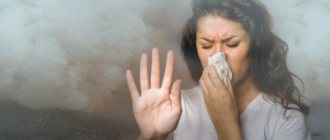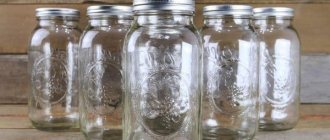Despite the age of modern technology and the advent of electronic books, many remain faithful to paper media. They need careful care and storage. It is important to maintain the presentable appearance of the products, because over time the pages turn yellow, the cover becomes covered with dust, and if stored improperly, mold may even appear on the sheets.
In addition, when reading, you can accidentally spill tea, coffee or another drink, and when folding, you can accidentally bend the corners of the sheet. To preserve products, we will look at how to store books correctly. And let's look at how to organize the care of paper media.
Eight rules for storing books
- Temperature and humidity are important factors in the storage and preservation of books. Due to increased humidity and temperature, harmful organisms and bacteria arise and develop, which destroy paper. A suitable temperature for storing books is considered to be 15-18 degrees above zero, and humidity should be no higher than 60%. How to maintain the desired level of humidity in an apartment or house, see here;
- It is important that paper objects are not exposed to direct sunlight, otherwise the paper will fade, turn yellow and become deformed. Therefore, choose a dark and preferably cool place for storage;
- To protect items from dust, place books in shelves or cabinets behind glass doors. However, many people prefer to use open storage to quickly find and take the desired work. In this case, you will have to do dry cleaning more often using a vacuum cleaner or a slightly damp cloth;
- Books are placed on shelves so that the works can be easily and conveniently accessed. As a rule, objects are placed in one row, one after another, but with little density. It is important that the book can be easily taken and put back. Excessive packing and storage may damage the binding and cover;
- There should be air circulation on the shelves of a bookcase or shelving unit. In a room that is too dry and without air, harmful bacteria appear and multiply quickly. To do this, arrange the books so that there is a gap of at least three centimeters between the top of the product and the next shelf;
- Do not stack books horizontally on top of each other, even if there is no storage space!;
- To keep the cover in good condition, especially if you are storing an antique book, use special covers or universal book covers;
- Periodically inspect the books and flip through the pages. If necessary, glue the items and straighten the pages, remove stains, or better yet, send the items for restoration.
Three tips for staying organized
- Place and method of arrangement of your library
Books on shelves cannot stand the sun. From exposure to ultraviolet rays, the spines and covers lose their brightness and become soft. Therefore, think about where it is best to place the bookcase: it should not be directly hit by light from the window. A dark corner of a room or office, the space under the stairs - all these places can be comfortably arranged as a library. You can create a simple backlight with ordinary light bulbs - this light will not harm the paper.
Today, open shelving is in fashion, but note that in advertising photos there are usually 2-3 books on the shelves. If you have quite a lot of publications, choose a full-fledged bookcase for them with closing (glass doors are possible). This will significantly reduce the amount of dust that will accumulate on the books.
- Systematization
Books in the library should be systematized. At home, you can use any scheme that is convenient for you - sort books by author, by size, by frequency of use, etc. Popular publications should be accessible within arm's reach; children's books should be placed down so that children can pick them up themselves. Let the rarely read but valuable copies of your collection be located on the top shelves. If the closet is tall, buy a ladder stool: it will be useful both for searching for books and for cleaning. Take the time to repair torn spines, covers, and pages.
- Regular and general cleaning
Do a little cleaning of the library every couple of weeks. It is enough to wipe the cabinet doors outside and inside with a damp cloth, wipe away dust from the shelves and frames, and walk along the shelves with a vacuum cleaner with a special attachment, reducing its power.
General cleaning involves removing books from shelves, damp cleaning the inside of the cabinet, wiping the books themselves and organizing them. This should be done once every few months.
Where to store books
The most common places to store books are bookcases and bookshelves. Choose furniture with glass doors. They will protect items from the rapid accumulation of dust, while you will see the titles and authors of works, which makes it easier to select the right book.
Shelving is convenient to use as a partition. They will divide the room into zones and become a great place to store books, photographs, souvenirs and various small items. By the way, the rack can be placed around the perimeter above the bed or along the wall where the door is located.
Many people ask whether it is possible to store books on the balcony. Since paper products do not like humidity and direct sunlight, this should not be done! Otherwise, items will become damp, fade, and even become moldy.
Books can only be stored in this way if it is a heated loggia. At the same time, you need to keep paper media in a dry and dark place where the sun's rays do not reach.
The listed options are not suitable for small rooms and apartments. Racks and cabinets clutter the space, and there is even less space. And a large number of books provide a noticeable visual load.
If you still decide to use such techniques, choose an interior in light colors, sophisticated furniture and do not use a lot of decor. Below we offer several solutions that will tell you where to store books in a small apartment.
Regular cleaning of bookshelves
It is better to remove book dust with a vacuum cleaner. The vacuum cleaner attachment kit includes a special brush with long bristles. It is just perfect for cleaning books.
You also need to thoroughly vacuum the shelves and wipe them with a damp cloth. Then wipe the book covers with a slightly dampened soft cloth. When cleaning books from dust, review them carefully; perhaps they require more thorough cleaning or minor repairs.
It is better to entrust especially expensive or antique books to a specialist for restoration, but you can remove stains and marks with a pen and pencil yourself.
How to Store Books to Save Space
To save space, use space in the room economically and practically, use corner shelves. They will not clutter up the apartment like cabinets, but will visually expand the room. In addition, corner shelves look stylish and original.
An alternative solution is to arrange shelves under the ceiling. They will save space, but getting the right book will be problematic. In addition, using massive shelves and storing a large number of books creates an overwhelming feeling.
For a small apartment, you can choose modern multifunctional furniture. Here, open bookshelves are located at the head of the bed or sofa, and spacious drawers are located directly under the bed. For a children's room, you can use retractable modules on wheels.
By the way, you can store children's books in special organizers. You can make textile pockets with your own hands or hang holders above the crib, on the back of a sofa or chair, on a door or on a wall.
Storing things in plastic or metal baskets is another practical and functional option for a nursery. Such products will save space in the room and teach the child to be tidy. How to teach children to clean, read this article.
An original option would be a library chair. In this case, along the perimeter of the chair there are shelves of different sizes, where it is convenient to fold and store various books and magazines. At the same time, the chair can be conveniently moved to any place and any room. In summer and warm weather, the chair can even be taken out to the balcony or loggia.
In a compact and small apartment, think about how you can effectively use the space by the window. Modern designers propose to arrange a practical and functional reading area in this place. Install shelves for books on the sides, above or below the window (provided that radiators are not placed under the window sill).
How to return a book to its “marketable” appearance and purity?
- If the notes are written in pencil, it is easy to remove them with a special eraser. The only nuance that you should pay attention to is that you need to use the eraser carefully, without exerting force, so as not to damage the sheets of paper. Writing with a ballpoint or ink pen is much more difficult to remove. Find a special ink eraser and use it.
- Ink blots are removed with hydrogen peroxide. Using a cotton pad soaked in peroxide, treat the ink stain, then blot thoroughly with a paper towel. Do not place books with wet pages on the shelf; they must first be thoroughly dried.
- Grease stains on book pages can be removed with tooth powder or chalk. This method is only suitable for fresh stains. Chalk powder is applied to the stain and ironed on top through a white sheet of paper or through a white paper napkin.
- Old grease stains can be removed with aviation gasoline or a mixture of gasoline and magnesium oxide (burnt magnesia).
- The rust that appears will become discolored after wiping the stain with a cotton pad soaked in citric acid.
- Wash any remaining finger stains with soapy water. A gentler method is to rub the finger stains with soap, then wipe off the soap with a soft, damp cloth.
- Remove surface mold stains that have formed on damp pages using a soft brush or a soft vacuum cleaner attachment. . Make sure that mold spores do not get back onto the paper. Then treat the stains with ammonia (apply it to a cotton pad and wipe the infected areas, covering a slightly larger area). The same procedure can be done using a three percent formaldehyde solution. Let the paper dry. If stains are still visible, wipe them with hydrogen peroxide.
When working with books affected by mold, use a protective mask. Mold entering the human body is harmful to health.
When removing stains, be careful not to damage the paper surface. If you notice that the top layers of paper are being removed along with the stain, stop this activity immediately.
Eliminating insects living in books
If while looking at books you notice insects or their metabolic products, urgently carry out work to destroy the uninvited guests. In this case, you can use several methods:
After any wet cleaning, book pages should be dried by inserting them between sheets of blotting paper.
- Place volumes of books in a plastic bag and place in the freezer for several days. By the way, this method was invented by an American entomologist and is successfully used in large libraries. There are even special installations for freezing paper media.
- Place the infested books in a plastic bag, add any anti-moth chemical and place them in a separate well-closed box for several days. Be sure to spray your shelving with an insect repellent spray. Before putting books on the shelf, ventilate them well.
- Remove stains left by insects on paper by wiping with a cotton pad soaked in food vinegar or a mixture of ammonia and glycerin in a ratio of one to four.
Some more important tips:
- Baking soda will help remove the unpleasant smell of mold or dampness. It must be filled between the pages and the book should be put aside for several days. Then remove the dry soda with a soft brush or vacuum cleaner.
- If a book falls under water, it must be dried in a well-ventilated area, slightly open (to do this, place plastic spacers between the pages).
Without waiting for the book to dry completely, place it under the press. To make a press, you can take any heavy objects that will not leave dents on the book. Then flip through the book. If wet sheets stick together, carefully separate them. To ensure complete drying and alignment, the sheets can be ironed with a warm iron; first, the sheet is protected on both sides with white paper. - In order for books to live with you for a long time and delight not only you, but also your children and grandchildren, they must be used correctly. When you pick up a book to read, wrap it in its cover. Don't eat while reading.
- Use bookmarks, do not fold the pages. If a page breaks, carefully straighten it and leave the book for a while under the influence of gravity. Do not leave the book unfolded, especially with the cover facing up. The book may fall apart and the pages may fall out.
- Take care of your books. If for some reason you no longer need them, do not throw them away, but take them to the nearest library.
Interesting and necessary books for you and, of course, cleanliness in the house!
Detailed accounting
In the case where the book library contains an impressive number of literary publications, it is worth thinking about compiling a catalog in which the available assortment will be kept track of. In such a catalog you can write down all the necessary information about the books: where they are located, their exact title, author’s initials, year of publication, etc.
It is not particularly important in what form this catalog will be presented; it can be either a handwritten notebook or a table in a computer program. The only remark: the computer version will be more practical, because thanks to the document search, the necessary information will be found in a couple of seconds.
It’s hard to disagree with the fact that for many, books are wealth. Wealth that needs proper storage and proper treatment. They will definitely serve you, your children and even grandchildren faithfully for decades if you care for them carefully and thoughtfully.
How to clean books?
If an unpleasant incident occurs, you accidentally left marks on the book that ruined the condition of the pages, don’t worry, there is a way to fix everything.
How to remove dirt from pages?
They work well with greasy marks:
- crushed chalk;
- ironing pages through waterproof paper.
To help get rid of ink:
- a mixture of citric acid and juice;
- a mixture of oxalic acid and triple cologne.
Traces from dirty fingers or pencils can be easily dealt with using white bread crumbs, which need to be rubbed over the damaged areas.
Book covers can be washed with water or soapy water (be careful, this can completely ruin the book). Professionals use formaldehyde to clean mold.
How to properly care for books
Follow a number of rules to keep your books in perfect condition.
Read carefully
- while flipping, do not make sudden movements that could tear the page;
- do not read in the bath, otherwise the book may “drown”;
- Avoid reading while eating if you don't want to mess up or accidentally spill your tea.
Use bookmarks
Do not use foreign objects such as pencils or pens as bookmarks, and do not bend the corners of pages. Agree, finding a piece of paper in the form of a bookmark will not be difficult; moreover, it will not damage your book.
Use covers
Some book publishers produce their products with a dust jacket that fits over the binding, which is a great advantage that will prevent damage to the paper. Put covers on the books you are currently reading.
Proper organization of book storage
Before placing your book collection in a storage location, make sure that it is located away from batteries and away from sunlight, which can cause significant damage to the paper.
Shelves
The most accessible and inexpensive option for owners of a small book collection. The downside is that the shelves are open, so books will need to be dusted frequently.
Shelving
Bookshelves are multifunctional, and thanks to the huge variety, you can find one that will fit into any apartment interior. The downside is the same openness of the shelves, where dust quickly accumulates.
Organizers for books
Book organizers do not take up much space in the room due to their compactness. They are suitable for placing the work you are reading at the moment. Organizers come in different types:
- boxes;
- stands;
- from textiles;
- in the form of baskets.
This storage device will be convenient for you because it is easy to move from one place to another.
